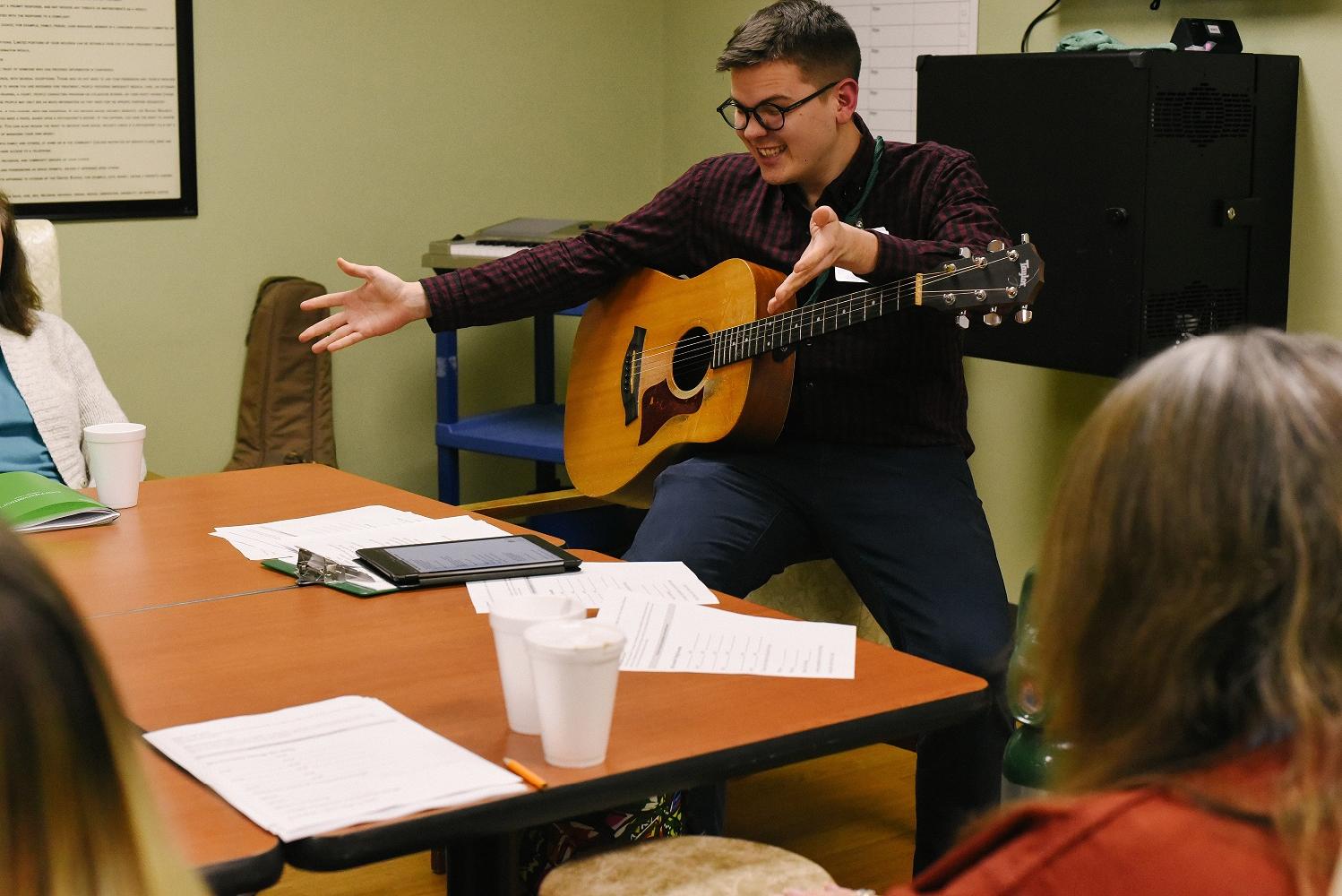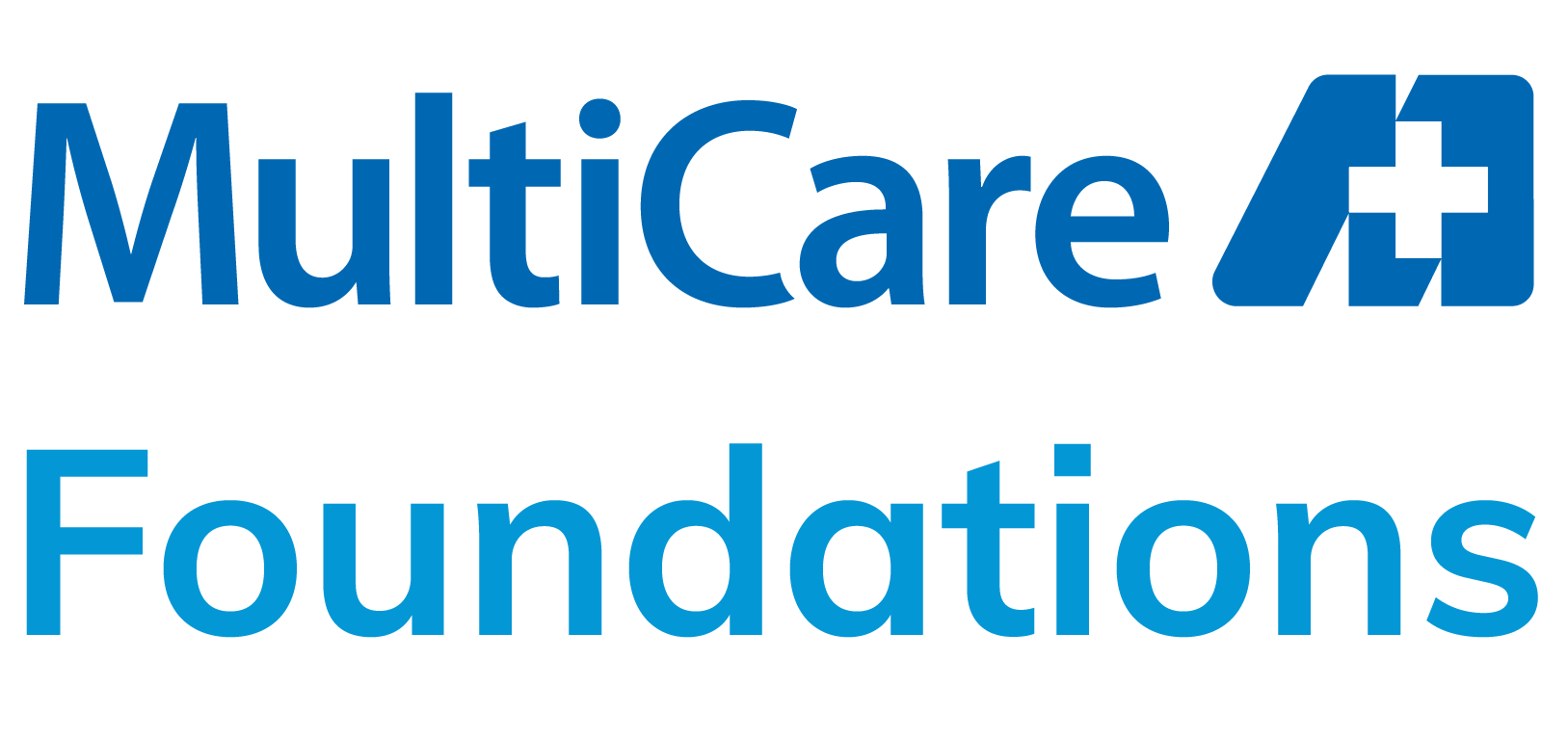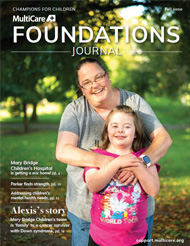Unique type of therapy is music to patients’ ears in Auburn

By McKenna Ownby
Every day at 1pm, music fills the halls of the Geriatric Inpatient Psychiatry Unit at MultiCare Auburn Medical Center. It’s not the radio or the TV; it’s Mike Thomas providing daily music therapy in the memory wellness unit.
“It's me building a rapport with patients, assessing what their needs are and then finding out how I can use music to meet those needs,” Thomas says.
“My favorite is when he plays Johnny Cash,” says Carmen, a current patient who says she never misses a class.
He’ll play a beat, then he’ll turn to his “audience" and ask them to repeat it back to him. That interaction creates opportunities for increased focus, stress reduction and interaction with peers. Even if it’s just for a few minutes or an hour every afternoon, the music yields instant results.
Thomas is a creative arts therapist for patients over the age of 50 going through sudden changes to their mental or physical well-being. His goal is to improve their emotional health and communication abilities, as well as cognitive skills and overall quality of life, through the practice of music therapy.
“All of the staff love to watch Mike with his classes whenever we hear the music start,” says Jennifer Taylor, a program manager for the unit and one of Thomas’s supervisors. “It doesn’t matter what reason a patient is here — they can all relate to and enjoy the music.”
The 38-bed inpatient unit provides care for older adults who may suffer from depression, anxiety, dementias and other cognitive disorders. The typical length of a patient stay is around 20 days, but can be longer based on their specific needs.
Music therapy is defined as the clinical use of music interventions to accomplish individualized goals.
He starts his first class of the day by playing the guitar and singing the name of each patient with a “hello song.” Then he’ll try to jog their memories with popular songs he knows they’re familiar with, even taking requests when patients have them.
But Thomas can’t effectively lead his class with just the guitar — he needs a variety of instruments, and they aren’t cheap. So when he expressed a need for purchasing drums to enhance the participation levels in his classes last year, his team turned to the South King Health Foundation for support.
Thanks to generous contributions, Thomas now has a keyboard and six drums that patients use daily.
He says the drums are a fan favorite.
“I wanted them to have a chance to engage in the music-making. With the drums, it’s great because you really just need to have the ability to tap a beat. They sound good right away, so it creates a lot of success,” Thomas says.
“It’s not a rarity to see people who are severely agitated or upset when they come into class, and then all of a sudden within 15 minutes or so, they're calm and attentive and engaged,” Thomas says.
On an average day, Thomas sees anywhere from 10-20 patients who attend up to two of his classes, focused on either memory or emotional well-being. They often tell him that the music helps them get through their toughest times, and families have even contacted him after their loved one is discharged from the unit to share the improvements they’ve noticed.
Carolyn, another current patient, calls the music classes the best part of her day.
“It’s the only thing I have to look forward to, while I’m here getting better,” she says.
Eventually, Thomas hopes to expand his selection of instruments to include hand chimes for their unique range of sounds. They can help people with cognitive disabilities improve their attention and focus.
“This funding is helping us give patients a better quality of life,” Thomas says. “The hospital can be a really scary and unfamiliar place, so the more opportunities we can give them to do something exciting, familiar or fun, the more they’re going to walk away from this experience and think, ‘I’m so glad I came to MultiCare.’”



